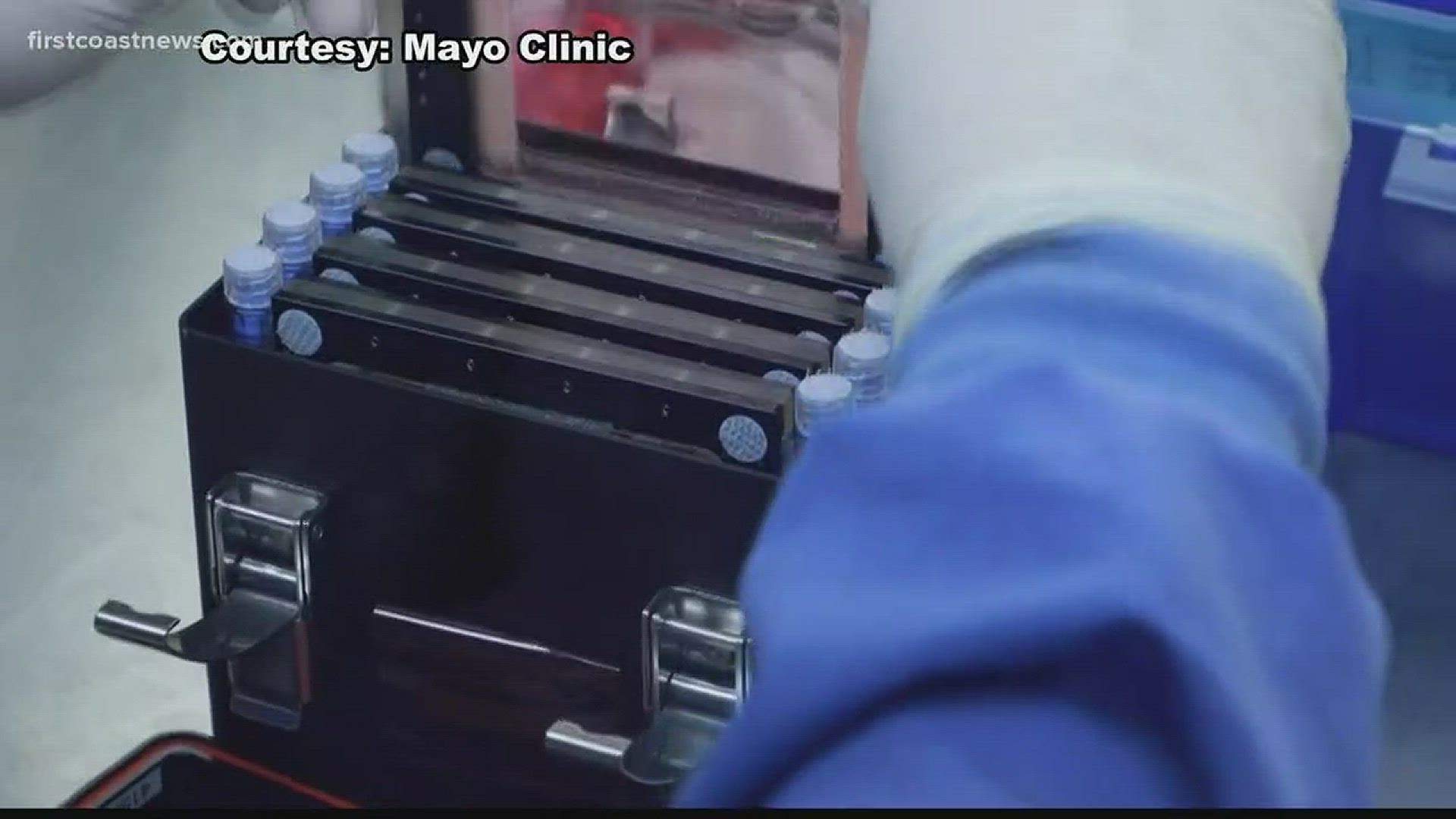JACKSONVILLE, Fla. - Inside the labs on the Mayo Clinic’s Jacksonville campus, sometimes the biggest breakthroughs come in the smallest packages.
“This mini brain was actually grown from one stem cell,” Guojun Bu, Ph.D., said.
Bu, associate director of Mayo Clinic’s Center of Regenerative Medicine, explained that stem cells help the body rejuvenate and repair injury or diseased conditions within the body.
“Most of us can recover from injury because of these stem cells,” he said.
Stem cells can be used to treat a wide range of conditions, Bu said, from an injured knee to neurodegenerative diseases like Parkinson’s and Alzheimer’s.
“Patients with Alzheimer’s typically lost up to one-third of their brain and that’s mostly neurons,” Bu said. “So if we use this technology to be able to deliver the stem cells to Alzheimer’s patients, they can recover by regaining the lost neurons.”
The problem that stem cell production is a labor intensive and time consuming process.
“It takes a long time, maybe six months or so, to produce one dosage to treat one patient,” Bu said.
But that’s changing.
The FDA recently cleared the way for Mayo Clinic to use an automated machine to produce stem cells. The new process could create billions of stem cells in a matter of days.
That means, Bu said, more stem cells will be available for clinical trials. Currently, a trial is underway for lung transplants, which are sometimes rejected by the recipient’s body.
“The stem cell has the ability to neutralize some of those immune responses,” Bu said.
A different clinical trial is scheduled to start soon for stroke survivors.
“We’re going to deliver the stem cells, either systemically through blood or directly to the brain, the injury site,” Bu said.
Bu cautioned the clinical trials take time, but having the stem cells they need to move forward is the first step toward infinite possibility.

